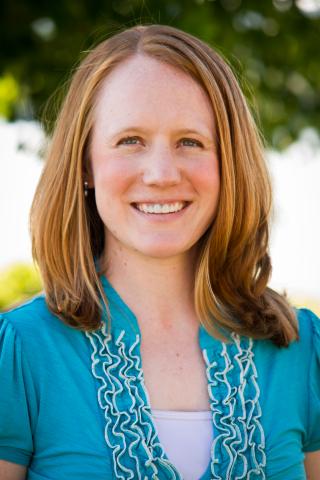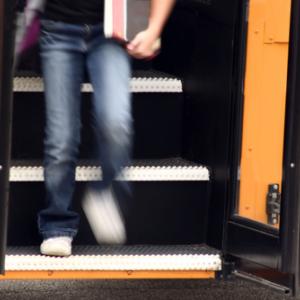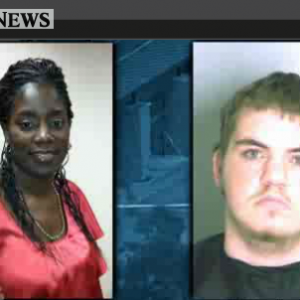
Emily A. Dause is a full-time public school teacher and a freelance writer. She received her B.S. in Elementary Education from Messiah College and her M.Ed. in Teaching and Curriculum from Penn State University. In addition to Sojourners, she contributes to several publications, including Evangelicals for Social Action, Relevant Magazine, Converge Magazine, and NCTM’s Teaching Children Mathematics. She is currently working on her first book, a project combining her passion for education and her passion for authentic Christian engagement with our surroundings. She blogs at sliversofhope.com. You can also follow her on Facebook or Twitter.
Posts By This Author
When 'Saving the World' Hurts
In recently released Runaway Radical: A Young Man’s Reckless Journey to Save the World, Jonathan Hollingsworth and his mother, Amy Hollingsworth (best-selling author of The Simple Faith of Mister Rogers) tell the story of college-age Jonathan’s mission trip to the African country of Cameroon. After participating in a short-term mission trip to Honduras, Jonathan felt inspired to serve others in a more profound way. When he connected with a missions organization that promised him a year of exciting opportunities to serve in Africa — and he was able to raise the necessary funding — he seized hold of the opportunity with a vulnerable heart and a zeal for personal sacrifice.
After reading the above description, you might be surprised to learn that Runaway Radical is actually a story of spiritual abuse. But by the time Jonathan prepared to leave for his yearlong trip to Cameroon, his entire family — and his supporters — were groomed for abuse. They were groomed by ideas perpetuated by many people and many organizations, teachings many Christians would follow without much of a second thought. The first idea asserts that everything done in God’s name is good. The second idea works in companion with the first, declaring there is always more you can be doing, more you can be sacrificing, to prove your commitment to your God and to his mission.
When Jonathan traveled to Cameroon, not only did his host prevent him from serving in the ways he had hoped, his mission organization used him and his funding for their own selfish purposes with little regard for his health and well-being. During his time in Cameroon, Jonathan’s organization forbade him from developing relationships with locals whose behavior did not follow their stringent moral code, defined for him who the “real” Christians were, and denied him immediate access to medical care. Jonathan also learned that the leader of the organization lied to him about the status of the the supposed projects of which Jonathan was to be a part.
What began as Jonathan’s eager and well-intentioned trip slowly and painfully morphed into a constricted and disillusioning journey of physical, mental, emotional, and spiritual anguish.
Careful With the Bible Drills
Confession: I cannot say the books of the Bible in order. Sometimes I still feel embarrassed when I have to flip around a little bit to find a certain book or, even worse, use the table of contents. It seems like I was supposed to learn this Christianity-defining skill at some point in my upbringing (preferably to the tune of a cutesy song or chant), but I never did. I am 28 years old, a teacher, and have a master’s degree, yet beyond the first few books after Genesis and “Great Electric Power Company” (Galatians-Ephesians-Philippians-Colossians), I get mixed up.
The realization that the order of the books does not particularly matter, then, comes with a bit of relief and freedom. In the Protestant canon, the Old Testament books are arranged by category (law, history, poetry, major prophets, minor prophets). The New Testament books are similarly arranged by type (Gospels, history, Paul’s letters, general letters, and prophecy). The Great Electric Power Company and friends — I mean, Paul’s letters — are actually arranged by length!
Certainly, there are reasons for knowing the order of the books in the Old and New Testament. It is simply more efficient to know exactly where to find a book. Knowing the names of all of the books does give you a general familiarity with our sacred text. These reasons, however, are functional, not crucial to one’s faith or salvation.
When Christmas Gets Real
Last December, I decided to run after dark and entertain myself by running through neighborhoods, looking at lighted Christmas decorations as I passed by. It was a novel twist on my regular exercise, and I enjoyed gazing at the beautiful, the creative, and the tacky alike.
Then, I started noticing the insides of houses, too. The Christmas trees were lit and decorated; the insides of the houses seemed warm and inviting. Suddenly, instead of an independent adult on a crisp winter jog, I felt more like a homeless orphan from a George MacDonald Christmas story looking in at something I did not have and of which I could not be a part. Needless to say, the run lost its sense of adventure.
Recently, it has struck me how strange the situation was, both in what I saw Christmas to be and in my decision that I “didn’t have it.”
A Twist on the Thankfulness Trend
It’s that time of year when Thanksgiving reminds us to be thankful. Many people use this time to acknowledge parts of their lives for which they are grateful, whether that means sharing around the Thanksgiving table or posting daily “thanks” on social media. Certainly, we have many reasons to be grateful, from food and shelter, to having choices in our own lives. It is important to jar ourselves out of taking much of what we have for granted.
I want, however, to challenge you think about your reasons to be thankful a little differently. Instead of thinking about the typical “good” parts of life for which you are thankful, consider parts of your life that you can be thankful for even though 1) others may see your reasons as negative or 2) you may see them as trials yourself. Trials or not, consider the redemptive strains present in all areas in your life, not just the ones you would usually say while waiting for someone to pass you the mashed potatoes.
The Isolating Power of Family-Centered Language
Until recently, I had always been in the majority. I am Caucasian, middle-class, healthy, and always did well in school. I had never had a personal label others would speak carefully about so as not to offend me. I had never been hurt by words people tossed around ignorantly to describe me. When taught appropriate ways to refer to a racial or ethnic group, I did not exactly understand why some words were preferable over others. Still, because I generally did as I was told, I followed the social rules. It certainly did not make much difference to me. In my preparation to become a teacher, learning “person-first” language (such as, “a child with a learning disability” rather than, “a learning disabled child”) was easy enough, even if I could not identify with the reason behind it.
I still cannot pretend to understand what it feels like to be the subject of the examples I described above. However, I have come to a point in life where I am in the minority and the language people choose to use stings and isolates. I am 27, single, and my father has passed away. It seems everywhere I turn in the Christian world — churches, organizations, politicians — I am excluded, because I am not part of a family.
3 Reasons to Stand with Public Schools
As with essentially any issue, you can find Christians with opinions all across the board regarding educational policy in the United States. I am not going to pretend there is one “right” political position for Christians to take or that I know all of the factors individuals consider when making choices about their children’s schooling. However, as a Christian, former public school student, and a public school teacher, there are three requests I would make of Christians regarding their conversations and their actions when it comes to education.
1. Please focus your efforts on issues of significance.
In public schools, the loudest Christian voices revolve around issues like the debate about removing “under God” from the Pledge of Allegiance (a phrase added to the pledge in 1954, a pledge that itself was only formally adopted by Congress in 1942). Another hot-button issue involves prayer in schools. When I have participated in “See You at the Pole” events as a student and as a teacher, I felt more like the hypocrite Jesus described praying loudly on a street corner than Daniel refusing to alter his by-the-open-window prayer routine.
How Antoinette Tuff Showed the Solution Is Not More Guns in Our Schools
As a teacher, I tend to change the channel or radio station when the news turns to issues related to schooling and education. It is difficult to listen to people discuss aspects of my daily experience as if they were a part of it. When a news story involves an act of violence in a school or a natural disaster wreaking devastation on children and school employees, I am almost less likely to listen. It is too painful to think about what that would be like for me, my colleagues, and most importantly, my students.
When major news networks began playing a recording of suburban Atlanta school employee Antoinette Tuff’s 911 call reporting a shooter in her school’s building on Tuesday, I almost turned off the TV. Then, I heard Tuff’s calm voice interacting with the shooter as though as he was any distraught child in the office needing extra attention. I started to listen.






